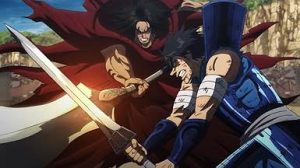 It’s worth repeating something I mentioned a while ago: in this time and place war was as much as anything an opportunity. An opportunity to die, yes – but also to make some money (no small thing since the overwhelming majority of the populace was dirt poor). And an opportunity for ambitious young men to climb the ladder at the expense of rivals less lucky or less good than they are. It’s individual moments and individual achievements that make careers in this context. And one could hardly imagine one more purpose-built than Xin’s battle with Pang Nuan.
It’s worth repeating something I mentioned a while ago: in this time and place war was as much as anything an opportunity. An opportunity to die, yes – but also to make some money (no small thing since the overwhelming majority of the populace was dirt poor). And an opportunity for ambitious young men to climb the ladder at the expense of rivals less lucky or less good than they are. It’s individual moments and individual achievements that make careers in this context. And one could hardly imagine one more purpose-built than Xin’s battle with Pang Nuan.
 Just by surviving a war like this, Xin gains traction. Not all young commanders do of course, though Meng Tian and Wang Ben did – and to be clear, Xin would never wish otherwise for those two. Nevertheless, Meng Tian was gravely injured and Wang Ben, as he laments, never crossed paths with a head worth separating from its owner. Xin had already done much to stoke his legend by the time he faced down Pang Nuan (who history tells us was the true commander-in-chief of coalition army), and just being at Zui ends up being a huge break But this was pure gold – the stuff of which careers are made.
Just by surviving a war like this, Xin gains traction. Not all young commanders do of course, though Meng Tian and Wang Ben did – and to be clear, Xin would never wish otherwise for those two. Nevertheless, Meng Tian was gravely injured and Wang Ben, as he laments, never crossed paths with a head worth separating from its owner. Xin had already done much to stoke his legend by the time he faced down Pang Nuan (who history tells us was the true commander-in-chief of coalition army), and just being at Zui ends up being a huge break But this was pure gold – the stuff of which careers are made.
 The battle itself is already decided at this point, as Jin Chengchang bluntly scolds the uncharacteristically hesitant Li Mu. Li is prepared to take on the suicidal mission of leading the rear guard to protect the retreat, but Chengchang will have none of it – he recognizes his value is a fraction of that or Li Mu or Pang Nuan’s, and cheerfully steps in to die in their stead. Of such quiet heroism are the ends of battles told since time immemorial. And the mere fact that Chengchang needs to step in reveals how badly things are going for Pang Nuan.
The battle itself is already decided at this point, as Jin Chengchang bluntly scolds the uncharacteristically hesitant Li Mu. Li is prepared to take on the suicidal mission of leading the rear guard to protect the retreat, but Chengchang will have none of it – he recognizes his value is a fraction of that or Li Mu or Pang Nuan’s, and cheerfully steps in to die in their stead. Of such quiet heroism are the ends of battles told since time immemorial. And the mere fact that Chengchang needs to step in reveals how badly things are going for Pang Nuan.
 If the specific lesson Qian Li taught Xin that he recalled at this moment has been revealed on-screen, I don’t remember it. Nevertheless this is clearly what happens, and Xin turns the tide of the duel by attacking the great man’s weapon instead of the man himself. This notion of the “path” is clearly very important to Pang Nuan in his odd quasi-religious worldview, and it’s Chengchang reminding him that this looks like the end of his path unless he retreats that finally moves him. Xin doesn’t take his head but he certainly wins the battle of pride, and forever stamps himself as that much more of a folk hero for it.
If the specific lesson Qian Li taught Xin that he recalled at this moment has been revealed on-screen, I don’t remember it. Nevertheless this is clearly what happens, and Xin turns the tide of the duel by attacking the great man’s weapon instead of the man himself. This notion of the “path” is clearly very important to Pang Nuan in his odd quasi-religious worldview, and it’s Chengchang reminding him that this looks like the end of his path unless he retreats that finally moves him. Xin doesn’t take his head but he certainly wins the battle of pride, and forever stamps himself as that much more of a folk hero for it.
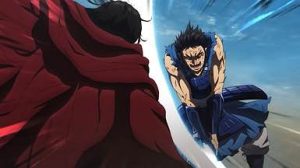 The crux of this episode is not the death throes of the battle, but what comes after it. Zheng’s gratitude – towards Yang Duan He and the mountain tribes, and towards the people of Zui – is genuine. Humility is a rare and precious trait in a monarch, and it’s probably the biggest reason Zheng has the seeds of greatness in him – he’s lived life at the bottom of the socioeconomic ladder, and feels no sense of entitlement to his current station. But the cost of this is a conscience – a vital thing for a great leader, but one which causes Zheng a great del of pain in moments like these.
The crux of this episode is not the death throes of the battle, but what comes after it. Zheng’s gratitude – towards Yang Duan He and the mountain tribes, and towards the people of Zui – is genuine. Humility is a rare and precious trait in a monarch, and it’s probably the biggest reason Zheng has the seeds of greatness in him – he’s lived life at the bottom of the socioeconomic ladder, and feels no sense of entitlement to his current station. But the cost of this is a conscience – a vital thing for a great leader, but one which causes Zheng a great del of pain in moments like these.
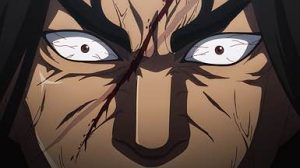 This is where you have to give Kingdom real credit, because it doesn’t content itself with being a war as sports manga but acknowledges the karmic brutality of it. What Zheng did is no less than kill 10,000 people (half the population) in Zui – they’d have been allowed to live if they surrendered. Zheng is smart enough to understand this, and the fact that he did it with inspiration rather than coercion makes him feel even worse. Xin is right – this is a dead-end road for his brother, this kind of thinking. But the fact that Zheng is wired that way is why he’s special.
This is where you have to give Kingdom real credit, because it doesn’t content itself with being a war as sports manga but acknowledges the karmic brutality of it. What Zheng did is no less than kill 10,000 people (half the population) in Zui – they’d have been allowed to live if they surrendered. Zheng is smart enough to understand this, and the fact that he did it with inspiration rather than coercion makes him feel even worse. Xin is right – this is a dead-end road for his brother, this kind of thinking. But the fact that Zheng is wired that way is why he’s special.
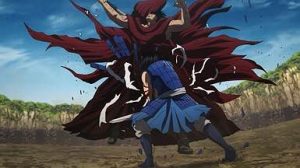 This effectively marks the end for the coalition invasion, and a huge blow for Li Mu. For Lu Buwei this “victory” surely has a bitter taste to it, given that he was already manoeuvring for power in the aftermath of surrender. The existential threat of Qin still exists, and the other kingdoms can’t ignore it. Chu’s Lord Chunshen (a hugely important figure of the era, by the way) takes the decision of where to go next out of Li Mu’s hands – Qi, the country that betrayed the coalition (thanks to Changwen’s brilliance and connections) before the invasion even started. This is the warring states era, so it’s only a matter of time till the next one – but for Kingdom that’s a matter for the next season, whenever it comes, and I expect the finale will focus more on reflection.
This effectively marks the end for the coalition invasion, and a huge blow for Li Mu. For Lu Buwei this “victory” surely has a bitter taste to it, given that he was already manoeuvring for power in the aftermath of surrender. The existential threat of Qin still exists, and the other kingdoms can’t ignore it. Chu’s Lord Chunshen (a hugely important figure of the era, by the way) takes the decision of where to go next out of Li Mu’s hands – Qi, the country that betrayed the coalition (thanks to Changwen’s brilliance and connections) before the invasion even started. This is the warring states era, so it’s only a matter of time till the next one – but for Kingdom that’s a matter for the next season, whenever it comes, and I expect the finale will focus more on reflection.


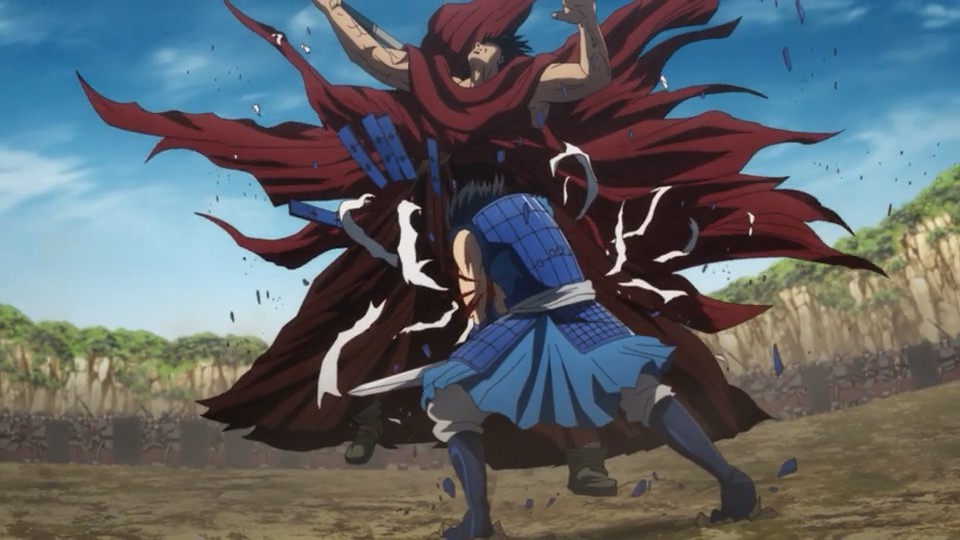
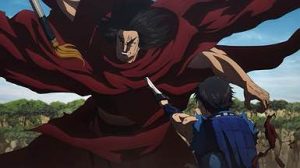
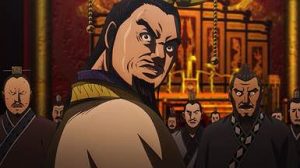
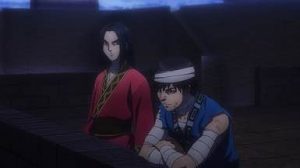

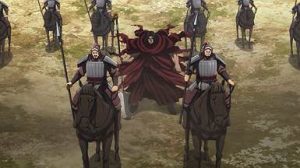



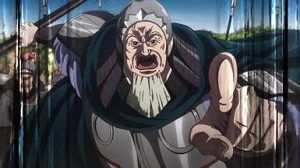
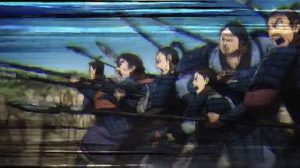

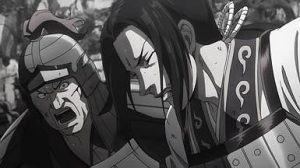
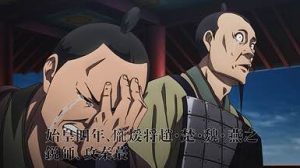
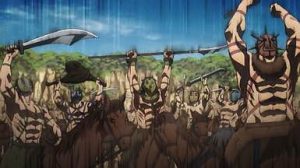
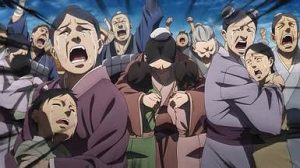


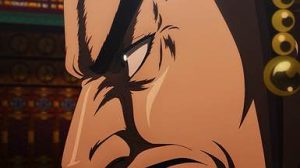
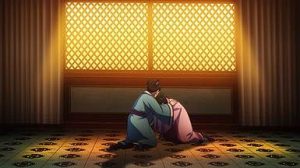
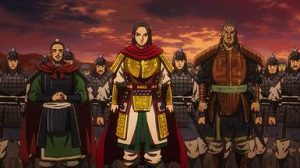
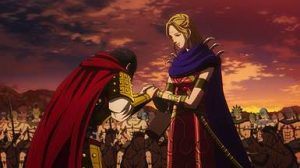
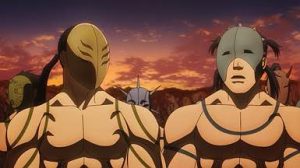


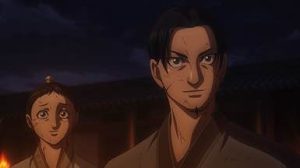


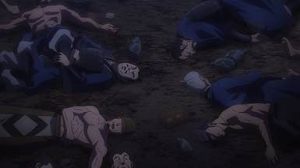


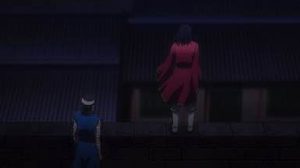
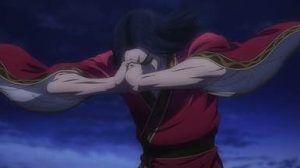
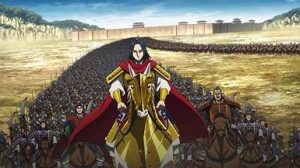
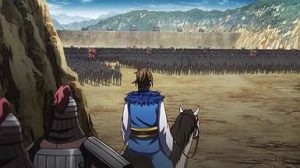

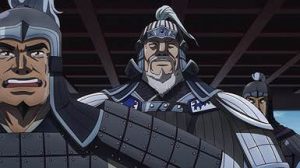




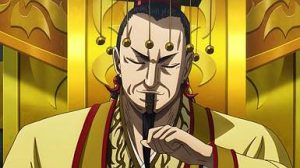
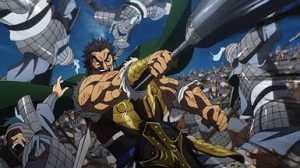


Marty
October 5, 2021 at 1:27 amIn my personal opinion, the Coalition War Arc is perhaps one of the greatest “War Arcs” ever put in manga form. While the anime didn’t disappoint, the lack of gore does somewhat Undermine the “war is hell” messaging common in even stories like Kingdom. Hell of an arc from a narrative point of view tho.